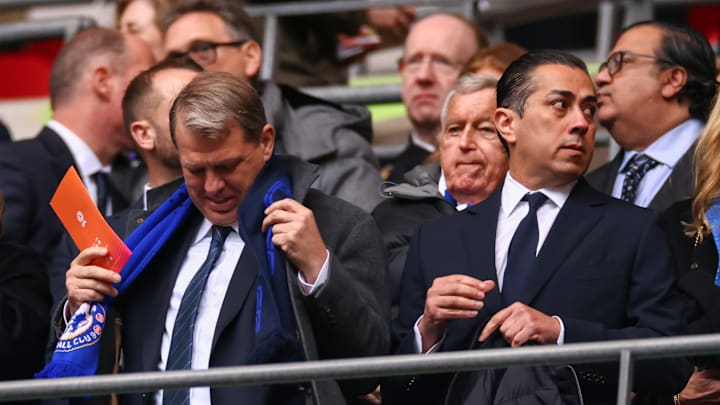Chelsea's problems go a lot deeper than the pitch or dressing room. Off the pitch, there is an actual power play being acted out by the owners of the club that may have severe consequences for the future of the Blues. American businessman Todd Boehly and Clearlake Capital managing partner Behdad Eghbali are currently on a collision course, creating what many describe as "civil war" within Chelsea. This controversy, which recently has kept the English press busy, may well decide on the fate of the club, both on the pitch and off it.
Follow Playing for 90 on X (Twitter).
The root of the conflict
In fact, since Todd Boehly and Clearlake Capital took over Chelsea in May 2022-after Roman Abramovich was forced to sell-the club has undergone huge structural changes. The sale estimated at about 5 billion euros marked a new era for Chelsea, yet it didn't take long before friction between the parties started to arise.
Boely, owning 38.5% of the club, takes long views on projects, from a new stadium to furthering the Chelsea brand worldwide. Conversely, Clearlake Capital's 61.5% ownership appears to take a more pragmatic approach, dwelling on a ten-year commitment. These conflicting visions keep stirring tensions, especially when the future directions of the club are discussed.
Backroom power tussle
The British media now reports that the relationship between Boehly and Clearlake Capital has reached an "unsustainable" point. It is now said that, with Boehly and Behdad Eghbali- co-owner and head of Clearlake-are separately preparing for a final resolution: one of them buying all of Chelsea's shares to eliminate the power struggle.
This internal fight isn't just about who runs Chelsea but is also reflective of their different visions for the future of the club. Boehly, with his long-term approach, seems set to transform Chelsea into a world powerhouse-from the new stadium right up to other ambitious initiatives. At the same time, Clearlake Capital, which invests more conservatively, seems interested in short-term returns on its investment.
On-field performance
These behind-the-scenes battles inevitably take their toll on the field. Chelsea has struggled on the pitch since the change in leadership. A team that once dominantly ran the rule in the Premier League and Europe has fallen short of expectations. This is not only because of underwhelming signings but also because of a lack of clear direction as to where the squad should be headed.
Transfers are one area in which Boehly and Clearlake will never see eye to eye. While one side advocates for heavy investment in young prospects and talented stars, the other suggests a conservative approach, leveraging return on investment. This misfit has cost the club dearly so far, regarding both its field performance and reputation as one of the giants of European soccer.
These are clear indications of internal conflicts, failed signings, and inconsistent performances in the Premier League. A host of big-money players were brought in, but few have lived up to the hype. This now leaves the team in an uncomfortable position on the league table.
Unsure future for Chelsea
Chelsea are now in a storm created by its new leadership. Uncertainty over who will finally assume ownership of the club is only adding to the pressure on all involved-which leaves fans and the media wondering what to expect these coming years.
In case Boehly finally manages to acquire all the shares, we should expect deep restructuring, which will also include long-term projects such as the long-awaited new stadium and expanding the global brand. This is a vision that requires great patience-something not necessarily in adequate supply in the game of soccer and especially at a club whose fans got used to quick victories.
In case Clearlake Capital takes up complete ownership, we might be seeing a more judicious kind of management, where financial equilibrium and return on invested capital might remain the highest priority. This style of management may be much safer from a business point of view, but may not really play into the hands of a fanbase seeking to see Chelsea competing with Europe's elite.
The tussle for control and Its aftermath
In reality, the battle between Boehly and Eghbali is far greater than an ego clash. Decisions will be made in the next weeks or months that will shape Chelsea for the forthcoming years on matters pertaining not only to the internal structure but to the squad, stadium, and even down to the presence of the team across the world.
If one ends up buying out the other, that would be a major change in direction. If Boehly wins this "war, Chelsea could well start investing in big projects and position itself for the long-term future as a global giant. If Clearlake ultimately wins out, Chelsea is likely to adopt a more cautious approach, looking for fast and sustainable financial returns.
Until the resolution of the power tussle, Chelsea, however, is held up in limbo. While the team fights on the pitch, silent but fierce battles for control are being staged off the pitch.
